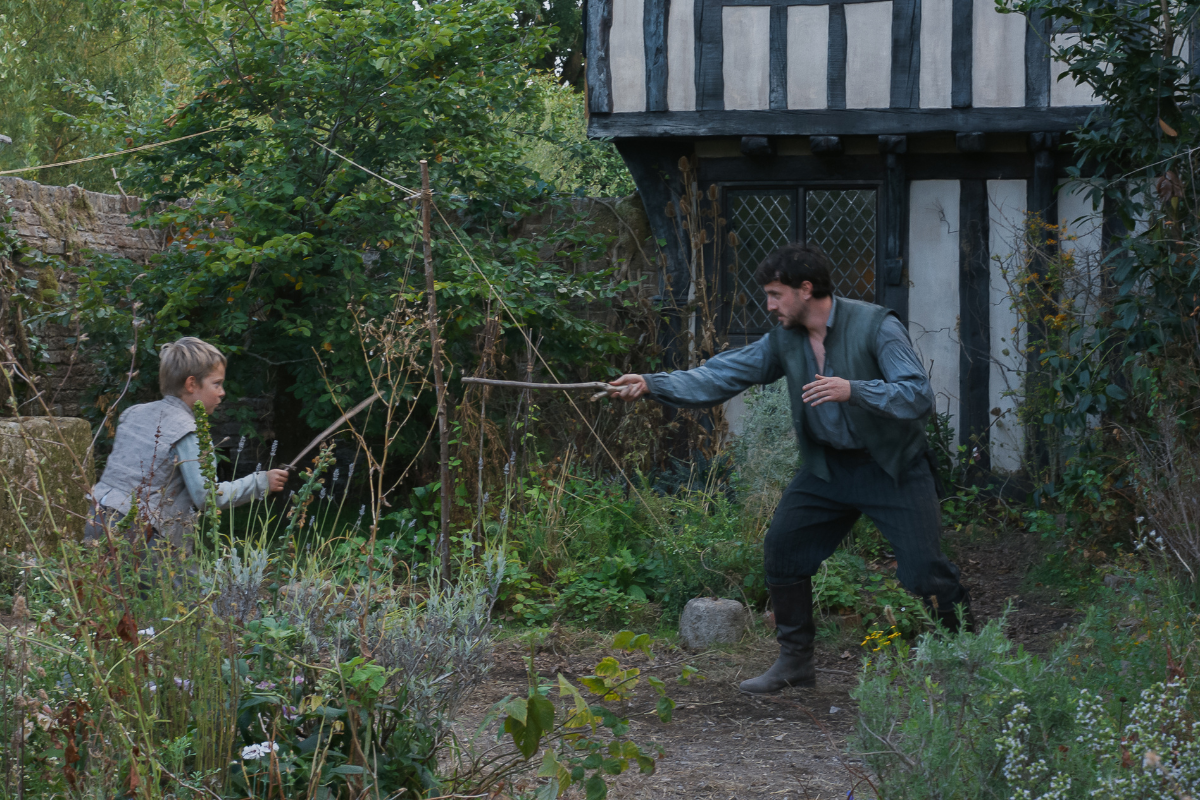What is a Story?: How to Write Dialogue That’s Meaningful
Based on personal observation, I’ve noticed there is a line of dialogue heard in virtually every movie and TV show I’ve seen recently: “Are you all right?” Sure, there are…
Based on personal observation, I've noticed there is a line of dialogue heard in virtually every movie and TV show I've seen recently: "Are you all right?" Sure, there are variations, like, "Are you OK?" or "You alright?" or "Is everything alright?" But, such variations are hardly worth mentioning.
The line is irritating not only because it is so banal, but primarily because it's the person being asked is clearly not alright. The question is even asked after horrendous trauma, i.e. being shot or shot at, surviving a bomb blast, etc. It's akin to asking, "So how's your day going," after someone's just been shot multiple times and is lying in the street bleeding. If the situation is comedic, that's different.
If the character is an idiot, or truly doesn't know if the person is alright, the line might be acceptable. But clearly the proliferation of the line is an indication not every line of dialogue endures scrutiny in the production of a film. James Lipton in the Actors Studio series, almost always asks his guests if they like to improvise or prefer to play it strictly by script. In some cases the dialogue needs to be relatively loose, while other times deviation from the script could hinder the screenwriter's purpose and meaning.
Most of my favorite quotes are from the movies. My favorite in recent years is, "What we do now, echoes an eternity." -- Maximus, Gladiator. Obviously not every line of dialogue needs to have Shakespearean meaning. "I'll be back" courtesy of Arnold Schwarzenegger, doesn't have a whole lot of meaning, with the exception of what culture has given it, now used in a variety of contexts, mostly to give the person saying it a feeling of importance. So, dialogue is often for entertainment, rather than a quest for truth or the meaning of life.
Dialogue needs to fit the character and time and place. However, a "play on words," so to speak, is perfectly acceptable especially in comedy, for instance, the use of hip hop language in a medieval story, like Martin Lawrence in Black Knight. Dialogue doesn't have to be exact. Back to Gladiator, Romans did not speak English, so the language needs to be suggestive, plausible, and believable. If it wasn't for "suspension of disbelief," many movies would fail miserably.
For all of Al Pacino's notoriety, including his love of Shakespeare, it's surprising he would choose a role in a movie that some believe holds the world record for the most times the word "fuck" is spoken (Scarface). It certainly fits the character and story. Swearing certainly is befitting of many a modern character, but as TV has proven with its stricter rules of censorship, writers can reveal character and story without having to resort to incessant and stupefying street language.
There are other ways to demonstrate empathy other than asking the obvious, "are you alright," when clearly the person is not alright. The line could create tension, depending on how it's delivered or responded to. Not only are there other ways to demonstrate empathy or create tension, but something else could be spoken that would help move the story forward. If the person asking doesn't know if something's wrong, this advances the story. If the person being asked lies, hides or is scared in their response, this too, advances the story.
The line might be more acceptable if, again, the meaning and/or underlying context has greater import than the actual spoken words. For instance, not wanting to reveal vulnerability or fear, the character denies anything could possibly be wrong, while underneath, they are terribly scared.
In Ray Morton's column entry, Meet the Reader: On Sluglines and Other Matters, he reveals another way dialogue is taken for granted. Instead of dialogue being written out, as it should be, amateurs will use descriptions such as "Mary and Pete spend all night discussing their relationship and where it went wrong," or "Joe and Fred huddle in the corner and have a heated discussion about particle physics and its implications for the fate of all mankind." Seems almost implausible that such instructions would actually be found in scripts vying for a greenlight.
The beauty of movies in contrast to plays is the ability to tell stories visually and aurally without having to use dialogue. We can see an airplane flying overhead without someone saying, "Oh look, there's an airplane flying overhead." In fact, the goal of many filmmakers is, in fact, to tell the story using minimal dialogue. The 1982 movie, Quest for Fire, was an experiment in virtually no dialogue, save for a few grunts here and there. 2001 Space Odyssey gave us one of the most memorable opening 20 minutes without a single word of dialogue.
Dialogue serves multiple functions: reveal character, move the story forward, create tension and suspense, express emotion. But it's the meaning and purpose underlying language that can prove to be more significant. It can raise the human spirit. It can give meaning to our lives and provide multiple meanings for the story.
Get 5 Tips to Make Your Dialogue Writing Pop plus our FREE Download Dialogue Writing & Advice from the Pros
Related Articles:
- Meet the Reader: On Sluglines and Other Matters
- Articles from AKA Dr. Format Dave Trottier
- Specs & The City: Show Don't Tell and 'Up'
Tools to Help:







